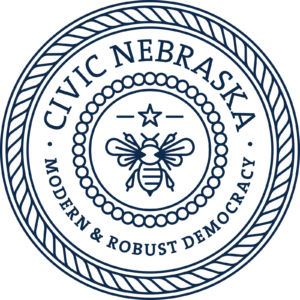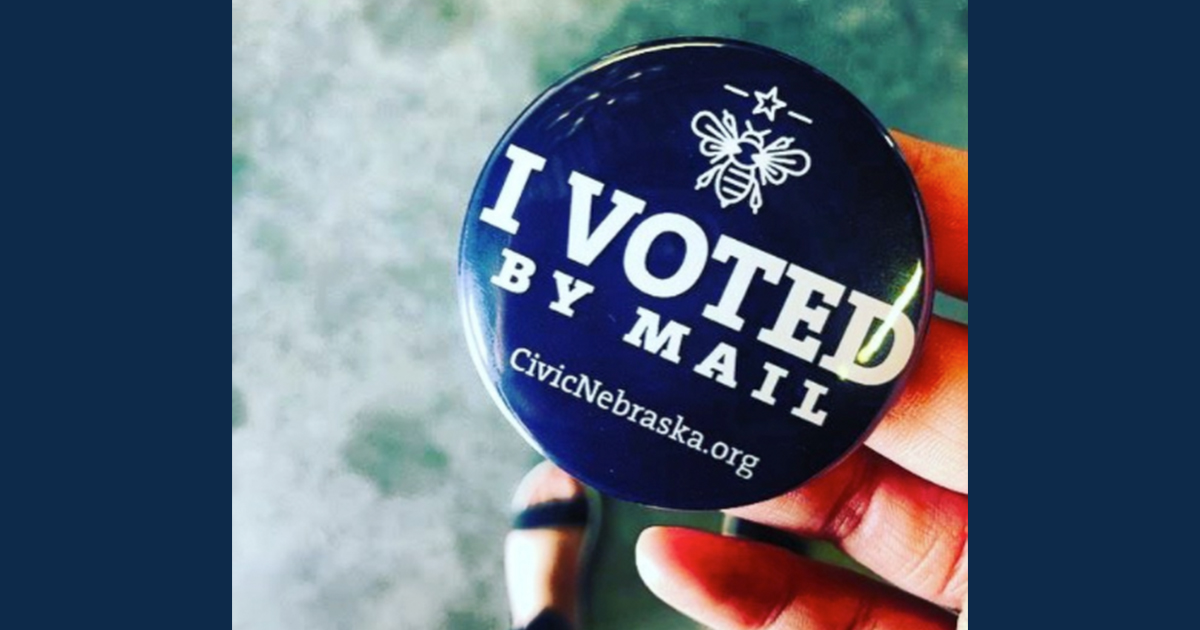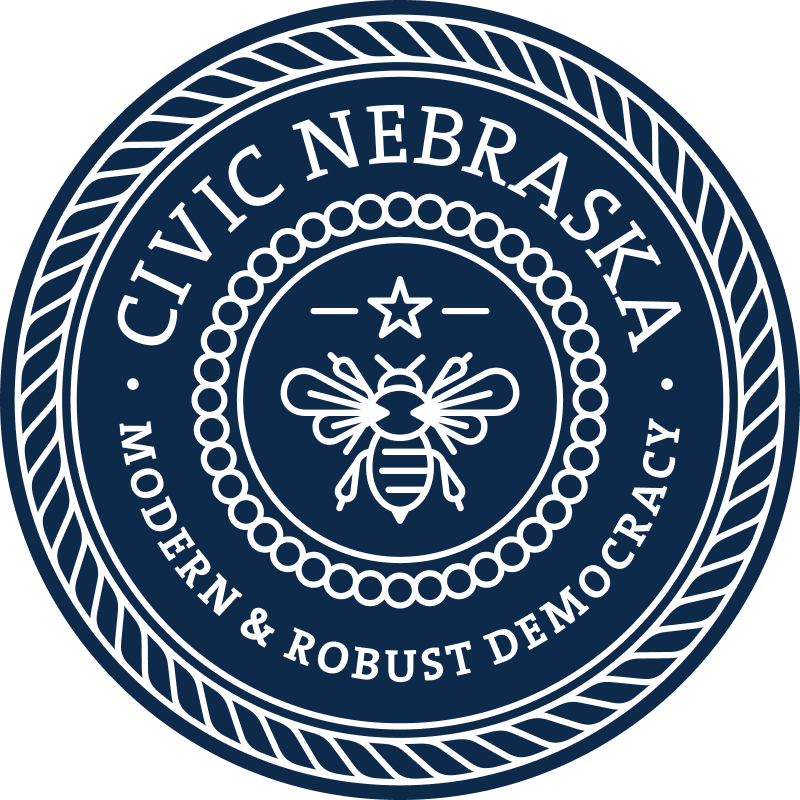Here’s some good public health – and civic health – news: As of April 5, more than 100,000 registered voters across Nebraska have requested mail-in ballots for our state’s May 12, 2020, primary election. That’s already nearly double the number of Nebraskans who voted early – about 59,200 – in Nebraska’s 2018 primary. And there’s still almost a month left to request mail-in ballots: May 1 is this year’s deadline.
The spike in interest is driven by the continued concern over the spread and impact of COVID-19, of course. But long before any of us had ever heard the term coronavirus, voting at home was becoming more popular in the Cornhusker State. Its ease and security, as well as the fact that it provides more time to reflect on and research our choices, make it a great way to participate in our elections in sickness as well as in health.
Still, like anything people may be discovering for the first time, we’ve heard concerns about the process. In a recent blog post, Civic Nebraska Director of Public Policy Westin Miller tackled the “Big 3” questions about voting by mail – which unsurprisingly bring up worries such as fraud, errors, and partisanship.
 1. How is voter fraud prevented?
1. How is voter fraud prevented?
Voting by mail is very safe. A ballot and return envelope is sent to the voter with instructions. The return envelope has an oath that must be completed and signed by the voter. The voter is then responsible for delivering the voted ballot in the completed return envelope either by mail, dropbox or in person. After receiving the envelope, the county election official verifies the signature and address of the voter by means of a barcode on the return envelope. The office logs the ballot as received in the state’s Election Management System, and then separates the ballot from the envelope for tabulation. To maintain the security of the ballot, county election officials take a number of steps: They code the ballot and return envelope, initial the bottom of the ballot, track the status of each ballot through the state’s Election Management System, and they make sure that the signature on the ballot return envelope matches that of the correct voter.
Voting by mail makes it easy to vote and hard to cheat. If someone duplicated a ballot and attempted to vote twice, the Election Management System would accept the first returned ballot but flag an error when the second ballot was received. If someone intercepted another voter’s ballot, they would have to steam it open, fill it out, re-seal it, successfully forge a signature, return it, all the while hoping that the intended recipient doesn’t notice it’s an election year and they never got a ballot.
2. How can we be sure a ballot isn’t mailed to the wrong person?
Vote-by-mail ballots are clearly addressed to a specific individual, and opening someone else’s ballot is already a felony. County officials and the state take multiple steps to ensure ballots are mailed to the correct addresses. Nebraska currently checks against the National Change of Address files and the Interstate Voter Registration Crosscheck Program. We also check against death records and run a check against the Department of Moter Vehicles database.
If despite all that a ballot is still mailed to the wrong address, the ballot will be returned to the county (ballots are not forwardable mail). The county can then try to contact the voter over the phone, and send a confirmation card.
A vote-by-mail standard improves the accuracy of the voter registration database. Because a ballot is sent to every registered voter, it will either be delivered without issue or it will be returned to the county election official, who can then take steps to confirm the voter’s registered address. This system has already helped several Nebraska counties achieve the most accurate voter rolls they’ve ever had.
3. Does vote-by-mail help one party over another?
A vote-by-mail standard helps whoever votes by mail. Nationwide, the early ballot request advantage varies by states – in some states, it’s Republicans with an advantage, in others it’s Democrats. In Nebraska, we’ve seen no evidence that vote-by-mail would affect one party over another.
The two before/after datasets we have are from Garden and Dawes counties. In Garden County, the 2016 election went 81.8 percent for Republicans, and in 2018 after the switch, it was an almost-identical 81.7 percent Republican. In Dawes County, Republicans saw about a 2 percent dip, but Republican candidates still won by a 41 percent margin.
We have found no evidence anywhere in the United States of election results being changed by converting to a vote-by-mail standard. It simply increases the number of people who vote.
Remember: If you’re a Nebraska voter, you should have received or should be receiving a vote-by-mail ballot request form for the May 12 primary election. It must be in the hands of your county election commissioner’s office on or before May 1. If you have yet to receive a ballot request form or think you may have misplaced yours, we can help: Go to CivicNebraska.vote and we’ll get a form to you.
![]()


